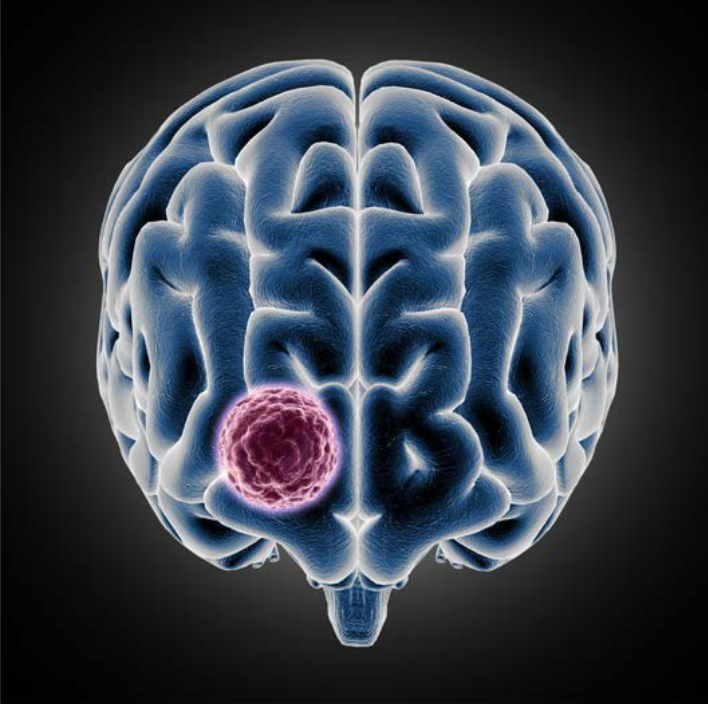Brain Tumours

World Brain Tumour day is observed on 8th June every year since 2000. This day was first observed by German Brain Tumour Association (Deutsche Hirntumorhilfe e.V.). A non-profit organization, it was started to raise public awareness and educate people about brain tumour.
A brain tumour is an abnormal mass of tissue in which cells grow and multiply seemingly unchecked by the mechanisms that control normal cells. Brain tumorus are either Primary or Secondary. Primary brain tumours develop intracranially and originate from brain tissue or surrounding tissues. Secondary brain tumours are those that arise elsewhere in the body (such as the breast or lungs) and metastasize/ migrate to the brain, usually through the bloodstream.
Symptoms
Most patients with brain tumour present with one or more of the following symptoms like headache, projectile vomiting, weakness/paralysis of one or more limbs, loss of touch sensation, visual disturbances, loss of hearing, speech difficulties, imbalance while walking, memory disturbances, tiredness, confusion and difficulties in decision-making, personality, or behavior changes, seizures and in some cases unconsciousness.
Diagnosis
Brain tumours can be diagnosed with CT Scan and MRI. Different sequences of MRI show more details about tumor nature, its extent and its vascularity. This helps to plan the surgical intervention. In KEM Hospital we import these same CT scan and MRI images through the Neuro-navigation system to help us to localise the tumour during surgery or for frameless stereotactic biopsy.
Treatment
Surgery is the main modality of treatment. Some practiced brain tumor surgery modalities we use are - microneurosurgery (with the use of microscope and micro instruments and ultrasonic aspirator), endoscopic neurosurgery and endoscopic skull base surgery (through Nose for pituitary surgery or CSF rhinorrhea).
Intraoperatively we use the neuronavigation system, Intraoperative Ultrasound, Fluroscence dye and all the advanced techniques available.
For eloquent area brain tumours, intraoperative neuromonitoring or awake craniotomy can be attempted.
In some patients Radiotherapy and chemotherapy may be needed.
Some other Facts about Brain tumour
- Brain tumours can occur at any age.
- The exact cause of brain tumour is not clear.
- The symptoms of brain tumour depend on their size, type, and location.
- The most common type of primary brain tumour among adults are -
- astrocytoma, meningioma, and oligodendroglioma.
- The most common type of primary brain tumours in children are medulloblastoma, grade I or II astrocytoma, (or glioma) ependymoma, and brain stem glioma.
- Family history and high dose X-rays are risk factors for brain tumour.
Prognosis
With advancements in the treatment of brain tumours, there is a significant improvement in the outcome of treatment in patients.



